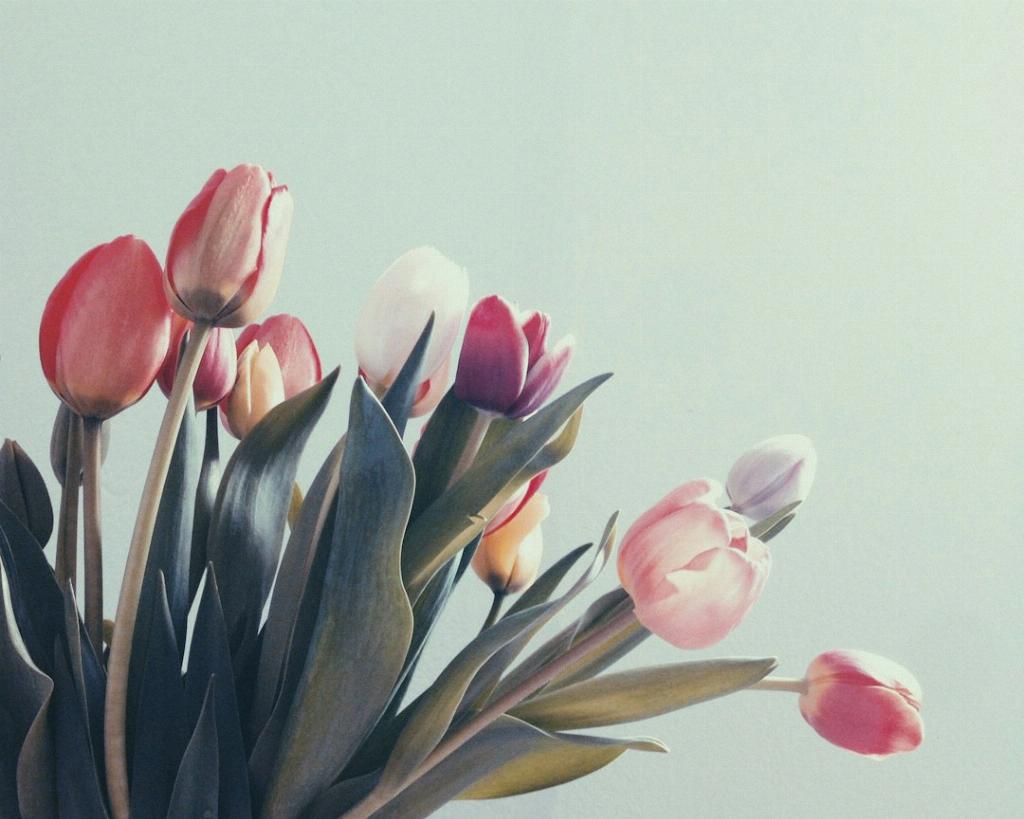Tulips, one of the most beloved flowers in the world, hold a richness of symbolism that goes beyond their aesthetic beauty. At the core of tulip symbolism is the expression of perfect and deep love. For centuries, these classic flowers have been associated with the concept of love in its purest form, making them a popular choice for expressing affection towards a loved one. Whether it is your partner, children, parents, or siblings, gifting tulips signifies a deep and unconditional love that transcends words.
A Symbol of Affection and Devotion
When you present someone with a bouquet of tulips, you are conveying a message of affection and devotion that is timeless and sincere. The elegant bloom of the tulip encapsulates the essence of love and appreciation, making it an ideal gift for expressing heartfelt emotions towards those who hold a special place in your heart.
The Language of Tulips
In the intricate world of floral symbolism, tulips speak a language of their own. Each hue of tulip carries a unique meaning, adding depth and nuance to the message you wish to convey. Red tulips, for instance, symbolize true love and passion, while pink tulips represent affection and happiness. Yellow tulips signify cheerful thoughts and sunshine, while white tulips embody purity and forgiveness.
A Gesture of Gratitude
Beyond their association with love and romance, tulips also symbolize gratitude and appreciation. By gifting someone a bouquet of tulips, you are expressing your sincere thanks and admiration for their presence in your life. Whether it is a friend, mentor, or colleague, offering tulips is a meaningful way to show your appreciation for their support and companionship.
Tulips as a Symbol of Renewal
In addition to their symbolism of love and gratitude, tulips also represent renewal and fresh beginnings. As these vibrant flowers bloom in the spring, they herald the arrival of a new season filled with hope and possibility. Gifting tulips to someone can serve as a powerful symbol of rejuvenation and the promise of a bright future ahead.
Cultural Significance of Tulips
Throughout history, tulips have held cultural significance in various societies around the world. In Turkish tradition, tulips symbolize paradise on earth and are considered a symbol of perfection and beauty. In Dutch culture, tulips are associated with the Golden Age and the prosperity of the Dutch Republic, making them a symbol of wealth and luxury.
A Versatile Symbol of Emotions
What makes tulips truly remarkable is their ability to convey a wide range of emotions through their symbolism. Whether you are celebrating a joyful occasion, expressing heartfelt gratitude, or seeking to reignite the flame of love, tulips offer a versatile and meaningful way to communicate your sentiments with grace and elegance.
The Allure of Tulip Symbolism
As you unravel the layers of symbolism surrounding tulips, you will discover a rich tapestry of meanings that transcend traditional floral gestures. The allure of tulips lies in their ability to encapsulate the complexities of human emotions and relationships, making them a timeless emblem of love, gratitude, and renewal.
Embracing the Beauty of Tulip Symbolism
When you gift or receive a bouquet of tulips, you are not just exchanging flowers; you are engaging in a profound act of communication that transcends words. Embrace the beauty of tulip symbolism and let these exquisite blooms convey your deepest emotions with grace and eloquence.

Conclusion
In conclusion, the symbolism of tulips is a testament to the enduring power of love, gratitude, and renewal in human relationships. By understanding the meanings behind these vibrant flowers, you can navigate the language of floral symbolism with confidence and convey your sentiments with sincerity and elegance.
